What is zopiclone?
Zopiclone is a medication used to treat a sleeping problem called insomnia. Zopiclone is a sleeping pill that belongs to a group of drugs called non-benzodiazepine hypnotics. It has a different structure to benzodiazepine sedative hypnotics, such as Halcion (triazolam), but has similar benefits and side effects.
Zopiclone helps to reduce the amount of time it takes you to fall asleep (sleep latency), increase the amount of time you sleep for (sleep duration), and decrease the number of times you wake up at night (nocturnal awakenings). Zopiclone starts to work quickly, taking about an hour to work.
Zopiclone works by binding to a receptor in your brain called the gamma-aminobutyric acid type A (GABAA) receptor and enhancing the action of gamma-aminobutyric acid (GABA), a chemical messenger that has a calming effect.
Zopiclone became available in the 1980s and is approved for use in many parts of the world. However, it is not available in the US where it is a schedule IV controlled substance. The US Food and Drug Administration (FDA) has approved eszopiclone (Lunesta). Eszopiclone is a stereoisomer of zopiclone, which means it is made up of the same parts connected in the same sequences, but its 3D structure is different.
Zopiclone usually comes as a tablet. In some countries, your doctor may be able to order you an oral solution containing this medication if you have trouble swallowing. Branded and generic versions of zopiclone are available.
What is zopiclone used for?
Zopiclone is used for the short-term (7-14 days) treatment of insomnia in adults. It is used to treat adults who have sleep problems such as:
- Difficulty falling asleep
- Waking in the middle of the night
- Waking too early
- Severe or upsetting sleep problems that are caused by mood or mental health problems
Zopiclone is not recommended for long-term use (more than 4 weeks) for chronic insomnia because it may cause tolerance and dependence, leading to withdrawal and rebound insomnia if this medication is stopped suddenly. Long-term use is usually considered an “off-label” or unapproved use of the drug.
Important information
Zopiclone may cause serious side effects.
- Use of this medication may lead to the development of abuse and/or physical and psychological dependence. The risk of dependence increases with dose and duration of treatment and is greater when this medication is used for more than 4 weeks, and in patients with a history of mental disorders and/or alcohol, illicit substance or drug abuse.
- Drowsiness, difficulties breathing, coma and death may occur if zopiclone is taken together with opioids. Zopiclone and opioids should only be used at the same time, when other treatment options are inadequate. Please tell your doctor about all opioid medicines you are taking and follow your doctor’s dosage recommendations closely.
- Some studies have shown an increased risk of suicidal ideation, suicide attempt and suicide in patients taking certain sedatives and hypnotics, including this medicine. However, it has not been established whether this is caused by the medicine or if there may be other reasons. If you have suicidal thoughts, contact your doctor as soon as possible for further medical advice.
- Before taking zopiclone, it is important to make sure that you can have at least 7 to 8 hours of uninterrupted sleep to help reduce the risk of some side effects.
- Zopiclone may cause sleepwalking or other unusual behavior (such as driving, eating, making a phone call, or having sex etc.) while not being fully awake. The next morning, you may not remember that you did anything during the night. These activities may occur whether or not you drink alcohol or take other medicines that make you drowsy with zopiclone. If you experience any of the above, stop the treatment with this medication immediately and contact your doctor or healthcare provider.
Who should not take zopiclone?
Do not take zopiclone if:
- You are allergic (hypersensitive) to zopiclone or any of the other ingredients in your medicaton.
Signs of an allergic reaction include: a rash, swallowing or breathing problems, swelling of your lips, face, throat or tongue. - You have a problem that causes severe muscle weakness (myasthenia gravis).
- Your lungs do not work properly (respiratory failure).
- You have a problem where you stop breathing for short periods at night (sleep apnoea)
- You have severe liver problems.
- You are under the age of 18. The safety and efficacy of zopiclone in children and adolescents aged less than 18 years have not been established.
- You have ever experienced sleepwalking or other unusual behavior (such as driving, eating, making a phone call or having sex etc.) while not being fully awake after taking zopiclone.
What should I tell my doctor before taking zopiclone?
Before you take zopiclone, tell your healthcare provider about all of your medical conditions, including if you:
- have any liver problems. Your doctor may need to give you a lower dose of zopiclone.
- have any kidney problems. Your doctor may need to give you a lower dose of zopiclone.
- suffer from mild breathing problems; your doctor will decide if you should receive zopiclone.
- have ever had a mental disorder (including depression and personality disorder) or have abused or have been dependent on alcohol or drugs.
- have recently taken zopiclone or other similar medicines for more than four weeks.
- take an opioid medication.
How should I take zopiclone?
- Always take this medication exactly as your doctor or pharmacist tells you to. You should check with them if you are not sure.
- Treatment with this medication should be as short as possible, because the risk of dependence increases with the duration of treatment.
- Swallow your tablet with a drink of water.
- Do not crush or chew your tablet.
- Take your prescribed dose just before bedtime and do not take again during the same night. Only take this medication if you are able to get a full 7 to 8 hours sleep before you need to be active again.
- The usual length of treatment is 2 days to 3 weeks.
- Keep taking zopiclone until your doctor tells you to stop. Do not stop taking this medication suddenly, but tell your doctor if you want to stop. Your doctor will need to lower your dose and stop your tablets over a period of time. If you stop taking zopiclone suddenly, your sleep problems may come back and you may get a ‘withdrawal effect’. If this happens you may get some of the effects listed below. See a doctor straight away if you get any of the following effects:
- Feeling anxious, shaky, irritable, agitated, confused or having panic attacks
- Sweating
- Headache
- Faster heartbeat or uneven heartbeat (palpitations)
- A lower level of awareness and problems with focusing or concentrating
- Nightmares, seeing or hearing things that are not real (hallucinations)
- Being more sensitive to light, noise and touch than normal
- Relaxed grip on reality
- Numbness and tingling in your hands and feet
- Aching muscles
- Stomach problems
- In rare cases fits (seizures) may also occur.
What happens if I miss a dose?
If you forget to take your dose of zopiclone by bedtime, just skip the missed dose and take your next dose at the usual time the next night.
Never take two doses at the same time. Never take an extra dose to make up for a forgotten one.
What happens if I overdose?
If you take too much zopiclone tell a doctor or go to the emergency department straight away. Taking too much of this medication can be very dangerous. The following effects may happen:
- Feeling drowsy, confused, sleeping deeply and possibly falling into a coma
- Floppy muscles (hypotonia)
- Feeling dizzy, light headed or faint. These effects are due to low blood pressure
- Falling over or losing your balance (ataxia)
- Shallow breathing or difficulty breathing (respiratory depression)
What should I avoid while taking zopiclone?
Do not drink alcohol while you are taking zopiclone. Alcohol can increase the effects of this medication and make you sleep very deeply so that you do not breathe properly or have difficulty waking.
You should not operate dangerous machinery or drive motor vehicles for 12 hours after you take zopiclone. You should also be careful the next morning when you wake up.
Dosing information
- Adults. The recommended dose in adults is one zopiclone 7.5mg tablet just before bedtime.
- Elderly – aged over 65 years old. The usual starting dose in elderly patients is one zopiclone low-strength (LS) tablet (3.75 mg) or half a full-strength (7.5 mg) tablet just before bedtime. Your doctor may decide to increase your dose to one 7.5 mg tablet if needed.
- People with liver or kidney problems. The recommended dose for people with liver and kidney problems is one zopiclone low-strength (LS) tablet (3.75 mg) or half a full-strength (7.5 mg) tablet just before bedtime.
- Children and adolescents. Zopiclone should not be used in children and adolescents less than 18 years. The safety and efficacy of this medication children and adolescents aged less than 18 years have not been established.
See the full prescribing information for further zopiclone dosing information.
What are the side effects of zopiclone?
Serious side effects of zopiclone include:
- Allergic reactions. The signs of an allergic reaction may include:
- a rash
- swallowing or breathing problems
- swelling of your lips, face, throat or tongue
Stop taking this medication and see a doctor or go to the emergency room straight away if you develop symptoms of an allergic reaction.
Tell your doctor as soon as possible if you have any of the following side effects, which are rare or of unknown frequency:
- Poor memory (amnesia) since starting this medication. This problem is less likely to occur if you have 7-8 hours of uninterrupted sleep after taking this medication.
- Seeing or hearing things that are not real (hallucinations)
- Falling, especially in the elderly
- Thinking things that are not true (delusions)
- Feeling low or sad (depressed mood)
Tell your doctor or pharmacist if any of the following side effects get serious or lasts longer than a few days:
- Including the following common side effects of zopicolne:
- A mild bitter or metallic taste in your mouth or a dry mouth
- Feeling drowsy or sleepy
- Dry mouth
- Including the following uncommon side effects of zopiclone:
- Feeling sick (nausea) or being sick (vomiting)
- Feeling dizzy or sleepy
- Headache
- Nightmares
- Feeling physically or mentally tired
- Agitation
- Including the following rare side effects of zopiclone:
- Feeling confused
- Itchy, lumpy rash (urticaria)
- Feeling irritable or aggressive
- Reduced sex drive
- Difficulty breathing or being short of breath
- Including the following side effects of unknown frequency of zopiclone:
- Feeling restless or angry
- Feeling light headed or having problems with your coordination
- Double vision
- Moving unsteadily or staggering
- Muscular weakness
- Indigestion
- Becoming dependent on this medication
- Slower breathing (respiratory depression)
- Unusual skin sensations such as numbness, tingling, pricking, burning or creeping on the skin (paraesthesia)
- Mental problems such as poor memory
- Difficulty paying attention
- Disrupted normal speech
- Zopiclone may cause sleepwalking or other unusual behavior (such as driving, eating, making a phone call, or having sex etc.) while not being fully awake.
These are not all of the possible side effects of zopiclone.
Call your doctor for medical advice about side effects. You may report side effects to FDA at 1-800-FDA-1088.
Interactions
Tell your healthcare provider about all the medicines you take, including prescription and over-the-counter medicines, vitamins, and herbal supplements. Especially tell your doctor if you are taking any of the medicines listed below.
Zopiclone may increase the effect of the following medicines:
- Medicines for mental problems (antipsychotics)
- Medicines for depression
- Medicines for epilepsy (anticonvulsants)
- Medicines used in surgery (anaesthetics)
- Medicines to calm or reduce anxiety or for sleep problems (hypnotics)
- Medicines for hay fever, rashes or other allergies that can make you sleepy (sedative antihistamines) such as chlorphenamine or promethazine
- Some medicines for moderate to severe pain (narcotic analgesics) such as codeine, methadone, morphine, oxycodone, pethidine or tramadol
The following medicines can increase the chances of you getting side effects when taken with zopiclone. To make this less likely, your doctor may decide to lower your dose of zopiclone:
- Some antibiotics such as clarithromycin or erythromycin
- Some medicines for fungal infections such as ketaconazole and itraconazole
- Ritonavir (a protease inhibitor) – for HIV infections
- Concomitant use of zopiclone and opioids increases the risk of drowsiness, difficulties breathing, coma and death. Follow your doctor’s dosage recommendations closely.
The following medicines can make zopiclone less effective:
- Some medicines for epilepsy such as carbamazepine, phenobarbital or phenytoin
- Rifampicin (an antibiotic) – for infections
- St John’s Wort (a herbal medicine) – for mood swings and depression
This medication can change the levels of liver enzymes shown up in blood tests. This can mean that your liver is not working properly. If you are going to have a blood test, it is important to tell your doctor that you are taking zopiclone.
Pregnancy and breastfeeding
Zopiclone is not recommended during pregnancy. If you are pregnant, think you may be pregnant or are planning to have a baby, ask your doctor for advice before taking this medicine.
Taking zopiclone during pregnancy may affect your baby.
- Some studies have shown that there may be an increased risk of cleft lip and palate (sometimes called “harelip”) in the newborn baby.
- Reduced fetal movement and fetal heart rate variability may occur after taking zopiclone during the second or third trimester of pregnancy.
- If zopiclone is taken at the end of pregnancy or during labour, your baby may show muscle weakness, a drop in body temperature, difficulty feeding and breathing problems (respiratory depression).
- If this medicine is taken regularly in late pregnancy, your baby may develop physical dependence and may be at risk of developing withdrawal symptoms such as agitation or shaking. In this case the newborn should be closely monitored during the postnatal period.
Do not take zopiclone if you are breastfeeding or plan to breastfeed. Small amounts of this medication may pass into breast milk. If you are breastfeeding or plan to breastfeed, talk to your doctor or pharmacist before taking any medicine.
Storage
- Store below 77-86°F (25-30°C)
- Store in a cool dry place away from moisture, heat or sunlight
- Keep out of sight and reach of children
What are the ingredients in zopiclone?
Active ingredient: zopiclone
Inactive ingredients:
Imovane 7.5 mg tablets: lactose monohydrate, calcium hydrogen phosphate dihydrate, wheat starch (gluten), sodium starch glycollate and magnesicum stearate. The opadry white OY-S-38906 coating contains hypromellose, titanium dioxide, macrogol 6000.
Zimovane 7.5 mg and Zimovane LS 3.75 mg tablets: lactose monohydrate, calcium hydrogen phosphate dihydrate, wheat starch, sodium starch glycollate, magnesium stearate, hypromellose, titanium dioxide and macrogol 6000.
Inactive ingredients may vary depending on the brand or generic version of zopiclone you take. Check the product label for the version you take for a full list of ingredients.
Zimovane is marketed by Sanofi in the UK. Imovane is distributed by Sanofi-Aventis in Australia and Pharmacy Retailing (NZ) Ltd in New Zealand.

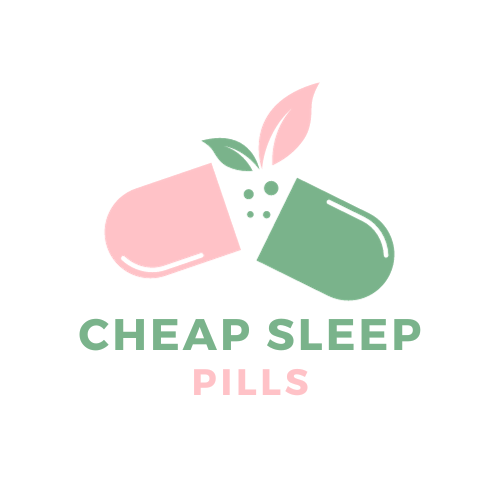
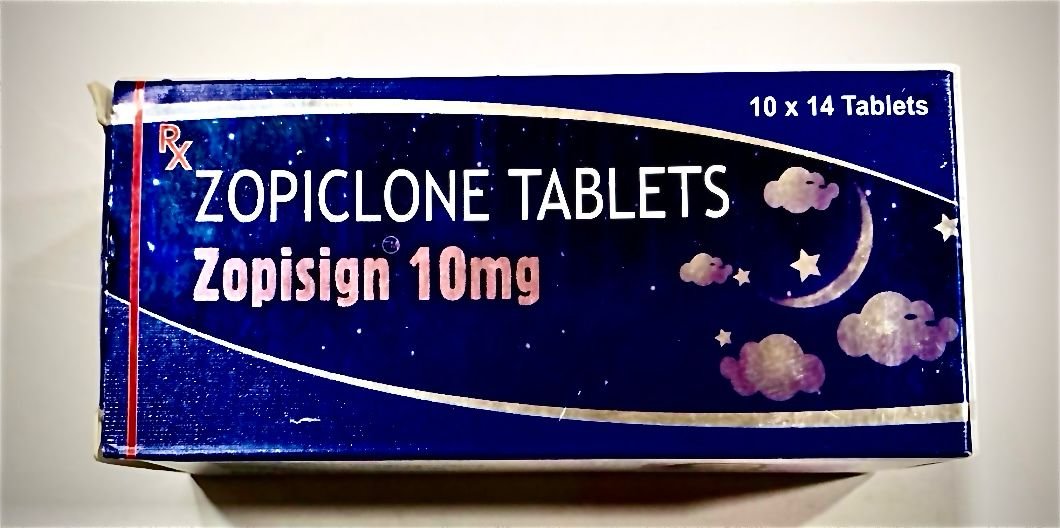
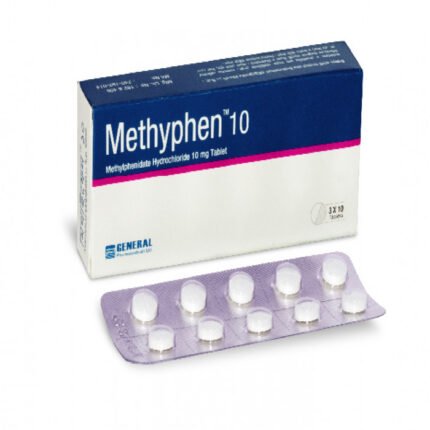
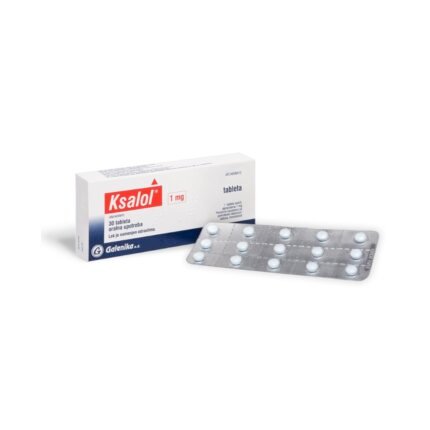


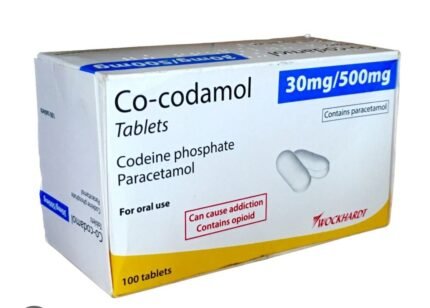
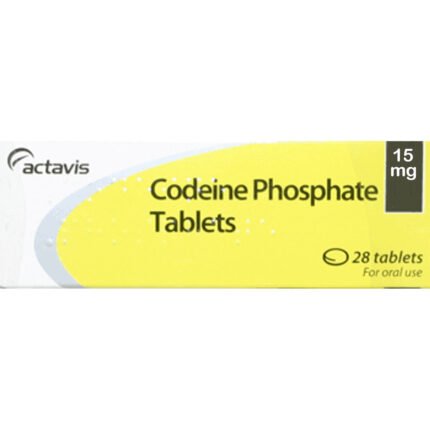
Reviews
There are no reviews yet.